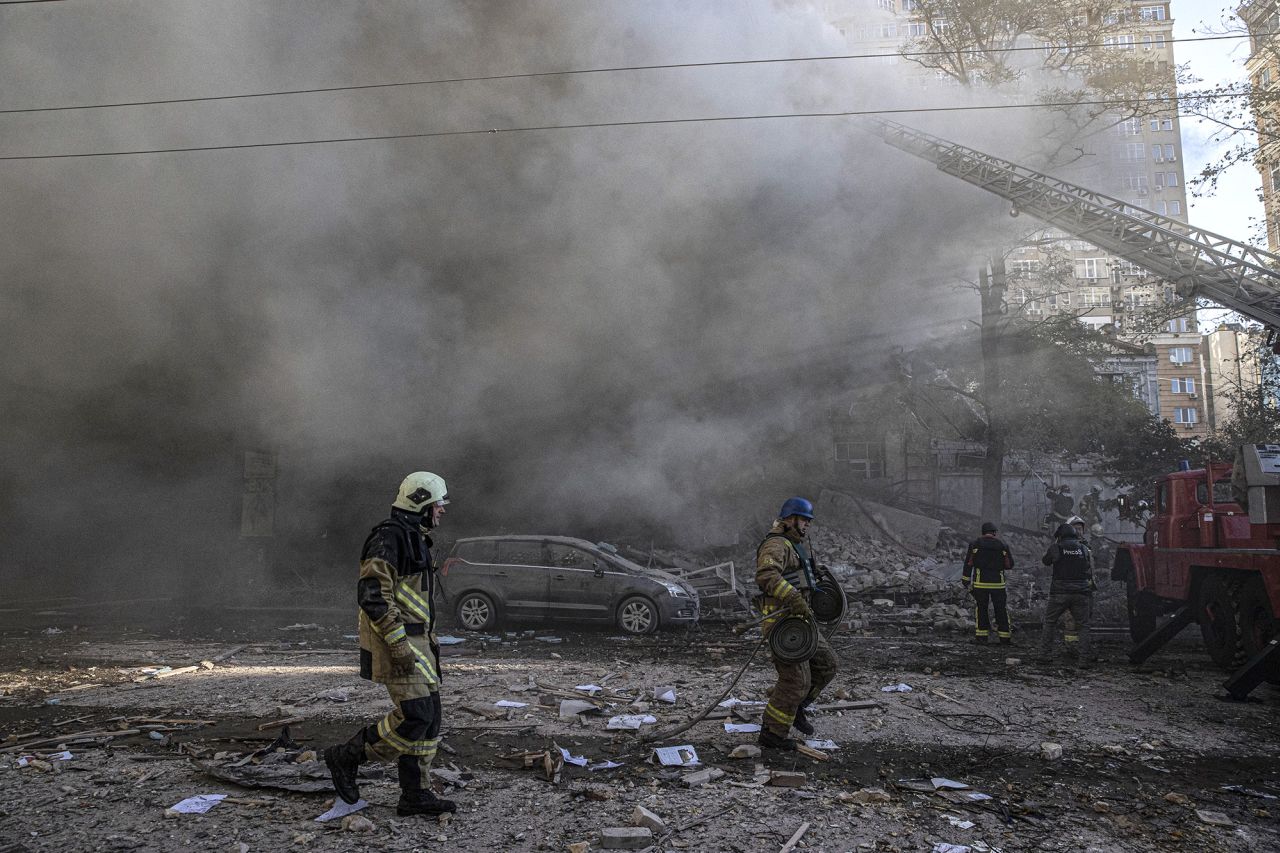Ukraine Strikes Back Against Russian Agents

Ukraine Strikes Back Against Russian Agents
In a rare and bold move, the Ukrainian Security Service (SBU) announced that it has taken out two Russian agents behind the assassination of Colonel Ivan Voronych. This incident, which took place in Kyiv, caused an uproar in the international community. The SBU's statement indicates that Ukraine is not willing to remain a passive victim of Russian aggression. This retaliation sends a strong message to Moscow that Ukraine will not tolerate any attempts to undermine its national security. The SBU's successful operation proves that Ukraine has the ability to defend itself against Russian aggression, even in the face of the ongoing conflict in the Donbass region.
About the People Mentioned
Colonel Ivan Voronych
Colonel Ivan Voronych was a senior officer in Ukraine’s Security Service (SBU), known for his decades-long service in Ukraine’s domestic intelligence and special operations. He commanded the secretive Fifth Directorate, a special operations unit responsible for covert sabotage and assassination missions targeting pro-Russian militants and commanders in eastern Ukraine. Notably, Voronych’s unit orchestrated the 2016 assassination of Arsen Pavlov, aka “Motorola,” a prominent leader among Russian-backed separatists, marking a significant psychological blow to pro-Russian forces. Voronych played a crucial role in Ukraine’s shadow war against Russia, including involvement in the bold August 2024 cross-border offensive into Russia’s Kursk Oblast. This operation demonstrated Ukraine’s capability for daring raids deep inside Russian territory and challenged Russian nuclear intimidation tactics, thereby influencing Western perceptions and support for Ukraine. On July 10, 2025, Colonel Voronych was assassinated in broad daylight in Kyiv’s Holosiivskyi district by a masked gunman using a silenced pistol. The killing was widely attributed to Russian intelligence services seeking retaliation against a key adversary in Ukraine’s covert operations. His assassination highlighted vulnerabilities in Kyiv’s security and represented a significant blow to Ukraine’s clandestine military efforts. Following the murder, Ukrainian authorities tracked down and killed suspected Russian agents involved in the assassination, underscoring the ongoing covert conflict between Ukraine and Russia. Voronych was highly respected among his peers, having earned Ukraine’s highest honors through active service rather than political means. His death is considered a major loss for Ukraine’s intelligence community and has intensified the shadow war dynamics amid the broader Russia-Ukraine conflict.
About the Organizations Mentioned
Ukrainian Security Service
The **Security Service of Ukraine (SBU)** is Ukraine’s principal state security agency tasked with protecting national sovereignty, state security, and constitutional order. Established on March 25, 1992, as the successor to the Ukrainian KGB branch following Ukraine’s independence, the SBU combines law enforcement, counterintelligence, and intelligence functions[2][1]. It reports directly to the President of Ukraine and plays a vital role in internal security, counterterrorism, counterintelligence, cybersecurity, and protection of state secrets, acting similarly to the FBI or MI5 in Western countries[3][2]. The SBU’s broad mandate includes combating terrorism, corruption, organized crime, espionage, and other threats to public security. It gathers intelligence and provides security for key government institutions, including the President and Parliament. Its operational scope extends to surveillance, investigations, safeguarding encrypted government communications, and countering hybrid warfare tactics, especially those employed by Russia amid ongoing conflict[1][4]. The agency has wide legal powers, including premises entry, detention, and carrying weapons, though these powers are subject to oversight by the Prosecutor General to ensure legality[1][2]. Significant reforms in 2019 aimed to increase transparency, reduce internal corruption, and shift some responsibilities—like organized crime—to other agencies, reflecting a strategic focus on combating Russian hybrid warfare and cyber threats[3]. The SBU employs approximately 27,000 personnel and is gradually downsizing to improve efficiency and civilian oversight[3][5]. Among its notable achievements is the arrest of Viktor Medvedchuk, a prominent pro-Russian oligarch, demonstrating its critical role in countering internal political threats aligned with foreign adversaries[4]. The SBU also leverages advanced technology, including unmanned aerial vehicles (UAVs) and cyber tools, to enhance intelligence collection and operational effectiveness. Its multifaceted approach integrates military counterintelligence, anti-terrorism, and cybersecurity efforts to safeguard Ukraine’s statehood during
SBU
The term **SBU** stands for **Strategic Business Unit**, which is not a standalone organization but a distinct, semi-autonomous unit within a larger corporation. Each SBU operates like a separate business, having its own vision, mission, and strategic direction focused on a specific product line, market segment, or geographical area. It is responsible for its own profits, losses, and overall performance, with independent management accountable for its results[1][2][3]. The concept of SBUs emerged to help large, diversified companies manage their complex operations more effectively by decentralizing decision-making and strategy development. This structure enables SBUs to respond rapidly to market changes, tailor strategies to their unique competitive environments, and allocate resources efficiently. SBUs typically possess their own support functions such as human resources, marketing, and training, allowing them to operate with considerable independence while still aligning with the parent company's broader objectives[3][6]. Historically, the SBU model has been widely adopted by multinational corporations like Procter & Gamble, Samsung, LG, and Unilever, where diverse product portfolios and markets demand specialized focus. For example, LG Electronics divides its business into SBUs handling different product categories such as home appliances and consumer electronics, each tracking its own financials and strategies[3][5]. Key achievements of companies using the SBU model include enhanced strategic agility, improved profitability through focused business planning, and better market responsiveness. SBUs allow large firms to manage multiple competitive fronts simultaneously, maintaining both innovation and operational efficiency. The structure also promotes accountability by designating specific managers responsible for performance in their unit[2][7]. Currently, SBUs remain a prevalent organizational form in business and technology sectors, especially suitable for conglomerates or firms with broad product ranges. This model facilitates clear strategic focus, faster decision-making, and optimized resource deployment, making it highly relevant in today’s fast-evolving markets. The SBU approach is recognized as a vital tool for sustaining competitive advantage and fosterin

















